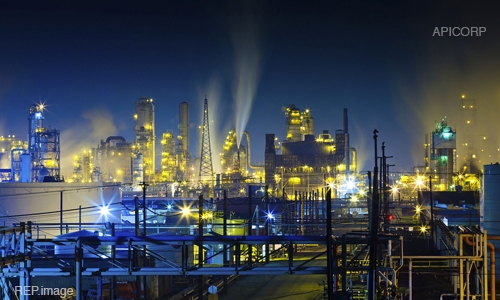ME nuclear ambitions to take decades to bear fruit
Manama: The full potential of nuclear power will not reach Middle East before the middle of the century and even then, it will face stiff competition from other energy sources, according to a recent Arab Petroleum Investments Corporation (APICORP), energy research report.
Middle Eastern countries planning for a nuclear energy push should establish appropriate infrastructure such as nuclear law, regulatory bodies, safety measures and also should assure their citizens that sufficient safeguards are in place to avoid accidents like those at Fukushima in 2011, according to APICORP.
It notes that the smooth progress of UAE’s nuclear programme is no guarantee that other states will be easily able to follow the footsteps, especially those countries with substantial hydrocarbon exports.
Though nuclear projects demand heavy up front capital infusion, they require low operational cost over their lifetime-usually 50 years. Up front capital costs range from US$3bn-6bn/GW of installed capacity, more than double the cost of equivalent coal- or gas-fired plants.
The report says, “Sustained increases in electricity demand in tandem with continuing demographic growth have prompted a number of MENA states to consider alternative sources of power generation, including nuclear. For countries in the GCC, nuclear power would free up more oil and gas for export, while net energy-importing countries like Egypt and Jordan would be able to secure long-term energy and reduce their import bills.”
“MENA countries are increasingly favouring renewable and coal as a means of diversifying their power generation mix. However, renewables technologies cannot offer the scale, productive capacity or reliability given their dependence on intermittent sun and wind. Between 2000 and 2013, the share of nuclear in global power generation dropped by 6pc from its peak in the late 1990s.”
In the Middle East, nuclear power facilities with capacity of just 5.6GW are under construction. Only a further 6.4GW are likely to come online by 2030. The International Energy Agency (IEA) estimates that by 2040, the region’s nuclear industry will account for only 3 pc of electricity generation, with oil and gas accounting for 70 pc.
“Economic growth, a rising population and sustained periods of Low energy prices have driven high power-demand growth in Saudi Arabia. Despite recent increases in energy prices and efforts to improve energy efficiency, the country still needs an additional 34GW of generation capacity by 2020,” APICORP says.
According to the report, rising domestic demand in the MENA region and the pressure to reduce its carbon footprint could boost nuclear development. Nevertheless, the likelihood is that financial, technical and political problems will cause delays. Governments considering the nuclear option must budget for high initial investment costs.
At a time when governments are rationalizing spending, nuclear will trail behind conventional sources of power development in the near future. Reduced credit ratings make it difficult for governments to access cheap finance.
Related Posts

